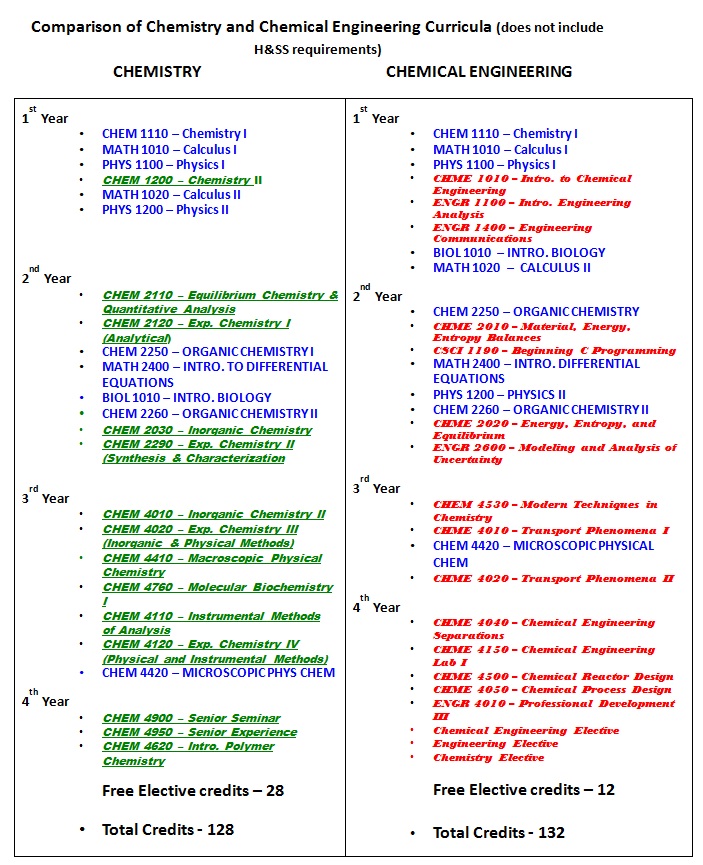Chemistry or Chemical Engineering – What Is the Difference
Many students who are interested in chemistry think of chemical engineering as their major - what is the difference? Both disciplines deal with much the same things and there is much overlap, but the basic differences are novelty and scale.
It is sometimes said that a chemist wears a lab coat; a chemical engineer wears a hard hat. But more specifically:
Chemists have a detailed knowledge of chemical structures, reactions, properties and of the underlying principles and theories. They make new materials, study their fundamental properties and reaction mechanisms, determine structures and carry out analyses. They work in a laboratory with small amounts of material using instruments such as infrared, visible-ultraviolet, mass and nuclear magnetic resonance spectrophotometers, chromatographs and others.
Chemical engineers have a general knowledge of chemistry, but their main focus is detailed knowledge of heat and mass flow, thermodynamics and the mathematics necessary for calculations in these areas. They scale up methods of synthesis, design systems for heating, cooling and transporting large amounts of material, work on improving the efficiency and economics of industrial processes. They may work in factory or pilot plant settings.
These differences can be seen in a comparison of the courses that each take. Blue - Common, Green - Chemistry Major, Red - Chemical Engineering Major. The Chemistry curriculum allows for more electives and diversity and provides a background for a variety of career paths.

